Table of Contents
Middle School French: M Putra
In the last edition of the Chatterbox for French Language Department, I would like to provide an overview of each Middle School class.
Grade 6
All students have completed the basics of French language. The basics of French language are the main foundation before advancing to the next level. Overall, they are able to make their own simple sentences correctly in French. They can introduce themselves or others, ask and answer questions, understand basic everyday conversations in French, tell time, etc. This level includes an introduction to French grammar and new French vocabulary. Students have mastered all language elements such as listening, reading, writing and speaking.
Grade 7
By reviewing the basics of French language, students can have more confidence to express themselves in French. Of course at this level, the teacher always encourages students to have the courage to practice their French, either in speaking or in writing. The teacher also provides students with knowledge of new vocabulary and more extended grammar so that they can communicate better. Overall, the teacher always provides students with exercises through the four pillars of language: listening, reading, writing and speaking.
Grade 8
This is the last level for Middle School students. In this class, students learn systematically, progressively and thoroughly all French necessary before moving to the “Intermediate level”. Each student masters a wide range of vocabulary and expressions. They are able to communicate about aspects of daily life, ask and answer questions, and talk about past, present or future events. They use extended grammar such as pronouns in their communication, both in speaking and in writing.
See also: Secondary Scoop: Middle School IT and High School Music
High School Science
Grade 9 Biology: Mr. Duopah
It has been a successful year for the General Biology students. A lot of online learning has been taking place and all the students are ready to complete their course. Students have been attending zoom meetings for their lectures. They have completed three units: cellular respiration and fermentation; cell growth, division, and reproduction; and introduction to genetics. The learning has involved several activities where students applied mathematical probability to predict the genotype and phenotype combinations of the first and second filial generations in genetic crosses.
Grade 10 Chemistry: Ms. Baldwin
Students in Chemistry have finished their units on thermochemistry and acids/bases. They completed an in-home lab in which they made an acid/base indicator using red cabbage. We appreciate your tolerance of the boiled cabbage smell! Students used this indicator to test the pH levels of various household chemicals including cleaners, soaps, juices, baking products, and foods. Using the pH they found, they were able to calculate the amount of different ions in solutions.
For the remainder of the school year students will be researching and building a presentation based on a poison of their choice. Students are working in groups to discover what makes a chemical poisonous, how it can be treated, dosage, toxicity, chemical structure and how it reacts with the body. We are looking forward to learning that they found!
The above picture is an example of the results from a student’s indicator lab
Top row: dish soap, water, toothpaste
Bottom row: milk, vinegar, baking soda, orange juice
Grade 11 AP Chemistry: Ms. Baldwin
The written AP Exam has come and gone. However, most AP Chemistry students have chosen to take the AP Exam online. There are four steps your student needs to complete before exam day (June 10):
- Download and install the digital testing app. This is available on the College Board website, and the link is on google classroom.
- Practice with example questions in the app..
- Exam set-up, which loads the exam onto the computer that will be used, must be completed within three days of the exam – the day before is the latest time it can be installed.
- Log in 30 minutes before the exam time. The exam begins at 11pm, so log in at 10:30pm on Thursday, June 10.
Please make sure these steps are completed. We are splitting our class time between two objectives: reviewing for those who have not yet taken the exam, and completing the final project. Review is essential for the AP Chemistry exam. The test is exceptionally difficult and covers concepts in ways not typically seen in conventional classes. Although we have had a lot of practice, and although all tests have consisted of questions from the College Board, students are still expected to spend considerable time outside of class reviewing for this test. There are endless practice questions and review videos on the College Board website. Besides the test, students also have a final project. The final project is researching and creating a poster presentation focusing on one specific molecule. The guidelines for the project are available on Google Classroom.
Grades 11-12 Environmental Science: Ms. Baldwin
Students have been diligently working on their Engineering for Good: the Problem with Plastics project for the last several weeks. The culmination of this project is a video advertisement about a potential solution. Students have been working on building a prototype and testing it, iterating the idea, giving and receiving feedback from their classmates, and writing a script. After this is finished, the final exam project is to explore an area of interest: animals in cities, recycling, electronics, and other potential topics. They will work in groups, read at least three (provided) articles, make an infographic and present their topic to their classmates in a Google Slideshow. Just like the Earth’s environment, everyone must contribute to the group’s objective for a healthy planet and a healthy project. There is a lot to complete in a short amount of time!
Grade 11/12 AP Physics 1: Dr. Santiago
It has been a challenging year of online learning for this class. Nevertheless, the class was able to persevere and complete all the required units in order to be ready for the AP Physics 1 exam. One student was able to take the paper exam last May 5 while the majority of the students opted to take the digital exam on June 10. All the students will need to submit a project as a final requirement for this class.
AP Biology: Mr. Duopah
AP Biology students have been studying several hours for their exam. This has involved watching AP Daily Live review lectures provided by the College Board, reviewing their notes, and solving Progress Check Free Response Questions in units 1 – 8. Some students took their AP exam on May 14 (in person) and others will be on May 27 (online).








